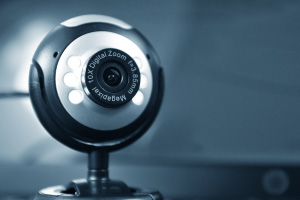Online courses directory (212)
Join us on an exploration to uncover new technology tools to connect your classroom and students to the Common Core. Plug in with other teachers in this six-week course where you will use technology to communicate and collaborate with students and colleagues. Each week you'll experience new technology tools and explore ways these tools can support Common Core standards and help you plan and create engaging student activities. A course certificate may be earned for completing assignment tasks.
This course focuses on the application of theoretical approaches to the strategic management of technology and innovation. Concepts, tools, and process will be explored through lectures, readings, team activities, and case study applications. Major topics include: The importance of technological innovation Dynamics of technological change Factors affecting technological innovation and adoption Organizational strategy and strategic management in the face of rapid technological change At the end of the course you will be able to: Identify how technological innovation impacts individuals, businesses, and society as a whole Explain how technology changes and evolves Identify the key factors affecting technological innovation and adoption Explain how organizations develop and manage strategies Explain the fundamental dynamics of technological innovation in an organizational setting Explain how to develop and implement organizational strategies for technological innovation
Analizar diferentes casos de estudio de usos educativos de las TIC y diseña un ambiente de aprendizaje que involucre herramientas digitales y tecnologías basadas en Internet.
Improve the outcomes in your classroom through practical applications of neuro- and cognitive science research.
How and why is the Earth constantly changing? How do scientists reconstruct events in Earth's geologic history? This course explores the origin and evolution of the Earth and provides resources for educational use.
Tinkering activities provide a powerful way to inspire students' interest, engagement, and understanding in science. The Tinkering Fundamentals course will help educators and enthusiasts develop a practice of tinkering and making. This course will focus on key design elements of high-quality, science-rich tinkering activities, effective facilitation strategies and environmental organization.
This course is designed for educators who wish to learn the fundamentals of being a quality online teacher using a pre-built online course. Ideally, participants will already have access to online course content via a course management system of their choosing (e.g., Blackboard, Canvas, Edmodo, Moodle, etc.). However, for those who don
The SAT is a timed standardized test, taken by most students in their junior or senior year of high school, often required for college admission. In the increasingly competitive college admission process, students today are looking for any and all ways to improve their candidacy. One element of your college application that can definitely be improved on to help your chances of admission is your SAT score. The test is made up of 10 sections, drawn from three subjects: reading, mathematics, and writing. All of these subjects review topics you have already learned in school: critical reading skills, arithmetic, algebra, geometry, grammar, and essay writing. You already have basic knowledge on these subjects. However, you can gain an extra edge and improve your score by reviewing the specific material that will be covered on the test and by becoming familiar with the rules and strategies specific to correctly answering SAT questions. Doing well on the test provides important information about you as…
This course is designed to equip you with the basic academic, professional, and personal skills you will need to be successful in college. You are probably already familiar with some of the skills and topics covered; others will be brand new ideas. For example, perhaps you have already learned some effective test-taking strategies that work well for you, but you have never heard of the concept of learning styles. Or, maybe you do know your learning style, but you want to improve your listening skills. Each student will have a different skill set when they start this course. In addition, some of the skills this course presents may take a lifetime to master! The point of the course is to give you, a new college student or a person considering a college education, a purposeful, thorough review of the many tools and skills needed for success and to help you understand how you can improve each of the tools and skills over time. Keep in mind that the terms “tools” and “resources” can refer to…
What is cheating? Do students do it more online than in traditional face-to-face courses? How do students cheat online and what strategies are instructors and institutions using to minimize it? How can course design and instructor/facilitator behavior impact student attitudes about cheating and academic honesty? What philosophical and psychological factors can inform our thinking about the subject? These are some of the many questions that will be explored in this course. Participants in this eight-week open course will examine philosophical and psychological perspectives on cheating; consider instructor, institutional, and student perspectives on cheating; learn about specific strategies and practices used by students to cheat in online courses; and develop a plan for cultivating a culture of honesty, integrity, and accountability in online courses. The end goal of the course is for participants to gain a deeper understanding of cheating in online courses.
Higher education professionals, new PhD graduates, newly hired university educators and research scientists, and others interested in enhancing their teaching techniques in a university setting will acquire in this six-week course the foundational knowledge of the science of teaching and learning and develop skills and strategies for teaching at the university level.
Eyejot is a Web application that can be used by teachers and trainers as an online learning tool where they get their students to record a video using a webcam. This video can then be posted on Eyejot for the teacher and other students to review. Eyejot has great potential for use in the classroom as an online learning tool. For example, a teacher can give their students a topic to practise talking about and the students can then record themselves practising alone or with another person and post the video on Eyejot. This online learning tool is particularly useful in language teaching, where students can record themselves speaking about different topics in a particular language. In this free online course about Eyejot you will learn how to create an account in Eyejot, record and send a video message, how to embed the video recording in a blog, how to save the video to your computer and how to import a list of contacts from your email address book. This course will be of great interest to teachers and trainers who want to integrate Web technologies into the teaching environment and who want to learn about using new Web applications that will greatly enhance the learning experience of their students.<br />
Lyrics Training is a Web application that allows you to read and listen to the lyrics from music videos and can be used as a fun and interactive way for language teachers and trainers to introduce new vocabulary and grammar to their students in a classroom setting. This free online language learning course will introduce you to the features and functionality of Lyrics Training, you will learn how to choose a song in the language you are learning and listen to the lyrics of the song word by word. Lyrics Training allows students to fill in the lyrics as they go along, and the difficulty level they choose decides how many words in a sentence are missing and they must fill in. This online language learning tool is particularly useful for students of foreign languages who want a fun and entertaining way to learn the correct pronunciation of words and it will improve their listening skills as students must identify words from a song. This free language learning course will be of great interest to all language teachers and trainers who would like to learn more about Web 2.0 applications that can greatly improve the learning experience of their students, and to all learners who would like to learn about using Lyrics Training for a fun way of learning a new language.<br />
This course is designed to guide science educators towards an understanding of the Framework for K-12 Science Education and how, when integrated with the Scientific and Engineering Design Practices and Crosscutting Concepts are the basis for classroom instruction using the Next Generation Science Standards.
Video games aren’t just fun, they can be powerful vehicles for learning as well. In this course, we discuss research on the kinds of thinking and learning that go into video games and gaming culture, benefits and drawbacks of digital gameplay, tensions between youth culture and traditional education, and new developments intended to bridge that growing divide.
This course will help new Courserans learn the names and faces of other employees.
Trusted paper writing service WriteMyPaper.Today will write the papers of any difficulty.













